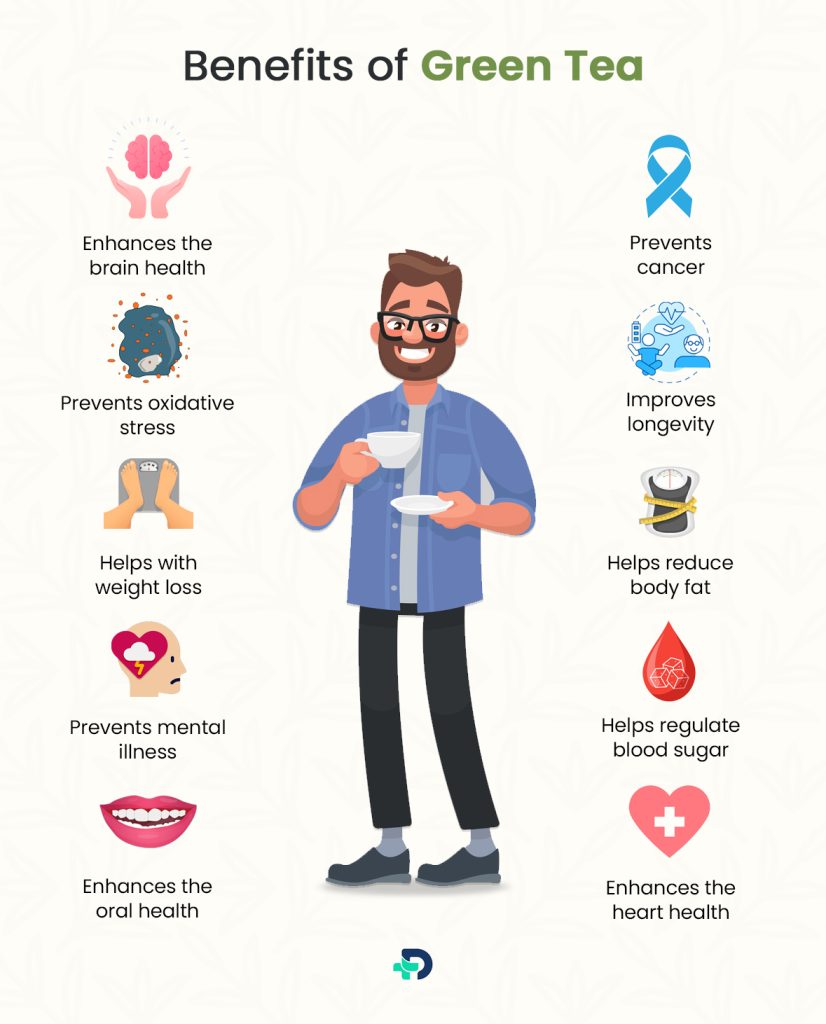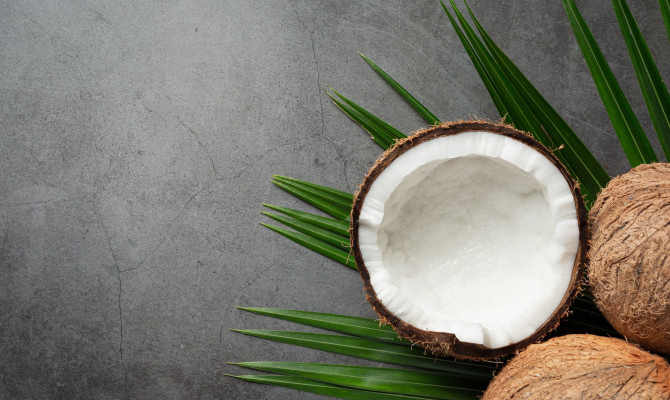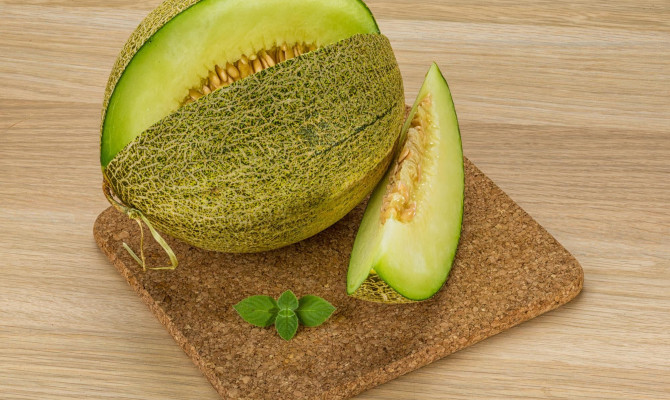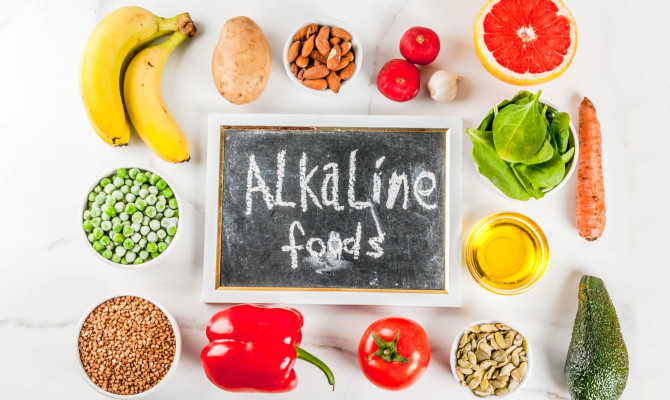Is Tea Acidic? Everything You Need To Know

- Tea
- 15 Sep 2023
Introduction
Popularity of Tea
Tea is the most popular refreshing drink that people enjoy worldwide. Although people accept tea well, many health-conscious people are now questioning whether tea is acidic or alkaline. So, keeping the focus on the prime question, the article will cover all the health-related things we need to know about tea. So, keep reading to explore in depth about tea.

Tea & pH
Tea is alkaline or acidic?
- A pH scale determines the alkalinity and acidity of any substance.
- If the pH value on the scale is 7, it is neutral; if it is less than 7, it is acidic; if more than 7, then it is alkaline. Any material with a pH of less than four is highly acidic.
- All teas are acidic, but some might be very acidic, with a pH of less than 3.
- As we all know acidic substances harm our teeth, and many of you might wonder if tea hurts our teeth too. Luckily, home-prepared teas are less acidic, and most do not drink enough tea to harm their teeth.
- Acidic tea that causes detrimental effects on teeth depends on several conditions viz; the tea type, intake frequency per day, ingredients added to tea, and the way one drinks 1 Tea and pH | Researched based study from Oral Health And Dental Management.
- Tea has a pH value of 5.5, which is relatively safe for our teeth. However, the tea pH might not always be at 5.5, and the variation in pH depends on certain factors viz; how long we steep the tea, the amount of water one puts in, and also the number of additives one mixes, i.e., herbs, citrus content or milk.
- However, diluting tea during preparation brings down the pH or acidity level. Generally, acidic tea tastes bitter. A research study found flavored fruit teas have lower pH (acidity) than other condiment teas 1 Tea and pH | Researched based study from Oral Health And Dental Management.
The pH (acidic levels or alkaline levels) for different teas is listed below-
- Black tea- 4.9 to 5.5
- Lemon tea- 3
- Green tea- 7 to 10
- Rooibos tea- 9
- Blackberry- 2 to 3
- Herbal teas (Mint, Fennel, Chamomile tea)- 6 to 7
- Fruit-flavored teas- 3 to 4
- Rosehip tea- 2 to 3
Reasons
Reasons for tea being acidic
- The tea acidity depends on the oxidation process they endure in the tea factories. Oxidation means losing electrons from substances to make them acidic. The more processed tea has a higher acidic level.
- Other natural compounds contributing to tea’s acidity and health benefits are oxalic acid, malic acid, and succinic acid.
- Tea caffeine is another factor for tea’s acidity.
- Tea acidity also gets enhanced based on the ingredients viz; citrus, spice, berries one mix while preparing tea.
- Extended dipping of the tea also enhances the tea’s acidic level and tea bitterness 2 Reasons | Researched based study from National Institutes of Health.
Tea Vs. Coffee
More acidic drink: Tea or Coffee?
- Tea and coffee both contain caffeine.
- Caffeine is a bitter-tasting natural substance that stimulates the stomach’s gastric acid secretion and elicits heartburn in some people.
- Brewed tea contains less caffeine than coffee. Thus, coffee is a more acidic drink than tea.
- A research study has found that coffee is more acidic than black tea and less acidic than lemon tea. Moreover, acidity levels of tea and coffee also vary depending on the source from which they purchased 3 Tea Vs. Coffee | Researched based study from National Institutes of Health.
Benefits

Benefits of drinking tea
Green Tea
Green tea, which is a low-acidic tea, has the following health benefits-
- Prevents oxidative stress
- Enhances the brain health
- Prevents cancer
- Prevents mental illness
- Helps reduce body fat
- Enhances the oral health
- Helps regulate blood sugar
- Enhances the heart health
- Helps with weight loss
- Improves longevity
Prevents oxidative stress
- Catechin (a polyphenol) in green tea help decrease cell deterioration by detoxifying the body from free radicals (harmful substances)
- Research has found that green tea is rich in Epigallocatechin-3-gallate (catechin), which prevents the risk of several chronic illnesses 4 Benefits | Researched based study from National Institutes of Health.
Enhances the brain health
- Green tea’s L-theanine and caffeine help in correct brain working
- Studies have found that taking green tea enhances the mood, memory, and thinking ability
- It also decreases memory decline in elderly persons 5 Benefits | Researched based study from National Institutes of Health.
Prevents cancer
- There are mixed results on green tea benefits on cancer
- A study has found that drinking green tea reduces the risk of certain cancer types, viz, ovarian and lung cancer 6 Benefits | Researched based study from Nature.
- However, further studies are warranted to get concrete conclusions about green tea and cancer risk
Prevents mental illness
- L-theanine and catechin in green tea restrain the risk of cognitive issues
- Studies have found that drinking green tea decreases the risk of Alzheimer’s disease (mental disorder) 7 Benefits | Researched based study from National Institutes of Health.
- However, more studies are needed to prove the effect of green tea on mental illness
Helps reduce body fat
- Research studies have found that drinking green tea and regular exercise improves the body’s metabolism and helps burn fat 8 Benefits | Researched based study from Springer Link.
- However, additional studies are required to prove the effect of green tea on body fat.
Enhances the oral health
- Studies have indicated that green tea improves mouth health by decreasing gum infections and other oral issues 9 Benefits | Researched based study from National Institutes of Health.
- However, further human studies are needed to confirm the fact
Helps regulate blood sugar
- There are inconsistent findings on the effect of green tea on blood sugar
- One study has found that drinking green tea reduces fasting blood sugar and decreases the fatality rate in people with diabetes mellitus 10 Benefits | Researched based study from BioMed Central.
- However, some studies found no effect of green tea on sugar control.
- Hence, more studies are warranted to validate the green tea effect on blood sugar.
Enhances the heart health
- Nutrients in green tea lower blood pressure and the body’s overall cholesterol
- Studies have found that it lowers the chance of heart ailments 11 Benefits | Researched based study from National Institutes of Health.
- However, more human trials are warranted to confirm the fact
Helps with weight loss
- Nutrients in green tea lower belly fat accumulation and reduce body mass 12 Benefits | Researched based study from National Institutes of Health.
- However, studies have not found green tea to reduce hunger and appetite in individuals.
Improves longevity
- Nutrients in green tea decrease the risk of persistent illness viz; diabetes, heart, and cancer 13 Benefits | Researched based study from National Institutes of Health.
- Studies have found that people who drank greater than five cups of green tea have increased longevity compared to those who consumed none or only one.
Is tea good for youngsters?
- Youngsters can take tea. It is a good choice over other liquid refreshments and sugary fruit drinks.
- But one must ensure to dip the tea for a shorter time while serving youngsters as prolonged dipping increases the tea’s caffeine content and acidity levels that are not good for them.
- However, adding other ingredients to tea might vary the acidic level in the tea.
Downside
Downside of drinking tea
Drinking tea in moderation is a good choice for the majority of individuals. However, drinking more than four cups of tea might cause some adverse effects.
Heartburn
- Tea’s caffeine content might worsen conditions in people with acid reflux. The caffeine loosens the esophageal sphincter (a muscular valve) and leaks the stomach acid back into the mouth, causing heartburn.
- Acid reflux is an ailment in which stomach acid gets back to the esophagus 14 Downside| Researched based study from National Institutes of Health.
Nausea & Vomiting
- Drinking massive amounts of tea on an empty stomach can cause nausea and vomiting.
- Tea contains a natural substance called tannin which might cause abdominal discomfort, nausea, and vomiting.
- However, the effect of tannin on individuals varies from person to person. Sensitive individuals might experience adverse symptoms in fewer cups of tea.
- To reduce abdominal distress, sensitive people might add milk to tea as tannin can bind easily to other carbohydrates and proteins 15 Downside | Researched based study from National Institutes of Health.
Increased Anxiety
- Caffeine in tea can cause nervousness and irritation when consumed in large amounts.
- Black tea contains higher caffeine than other tea varieties. Studies have found that consuming lesser than 200 milligrams of caffeine every day does not cause significant effects in most individuals. However, caffeine sensitive might need to limit their tea intake 16 Downside | Researched based study from National Institutes of Health.
Reduced iron absorption
- Tannin in tea can combine with some food and decrease its body’s absorption.
- Studies have found that a high tea intake hampers the body’s iron absorption.
- So, people with iron deficiency but tea lovers must limit their tea intake to 1 to 2 cups daily 17 Downside | Researched based study from National Institutes of Health.
Difficult sleeping
- Caffeine in tea might obstruct an individual’s sleep when taken in large amounts.
- Studies have found that caffeine hinders the body’s melatonin hormone production. Melatonin is a natural substance in the body that regulates the sleep cycle. It directs the body to sleep in time 18 Downside | Researched based study from National Institutes of Health.
Tips
Tips to protect teeth from acidic tea
- For teas to have a detrimental impact on teeth, the pH must be between two and four. However, most teas are outside that range.
- A research study found that pH levels re-establish after minutes of taking black tea 20Tips | Researched based study from Nature.
Here are some tips to follow for people with sensitive teeth
- Avoid keeping tea for a prolonged time in the mouth before swallowing
- One must also avoid moving the tea between the teeth
- Practice brushing your teeth after drinking acidic tea (preferably after half an hour). Brushing immediately after taking hot or sour tea or drinks might ruin the teeth’s enamel
Tips to make the tea less acidic
- Add milk to reduce the acidity in tea. However, one must be aware of the type of milk one mixes. Pasteurized milk lacks bacteria, making the tea more acidic than standard milk.
- Add sufficient water to reduce the tea acidity
Least acidic teas and some teas best for gastric
- Camellia sinensis tea is somewhat sour.
- White tea and yellow tea have higher pH and are less acidic.
Ginger tea (best for gastric)
- Ginger tea decreases abdominal issues viz; stomach gas (bloating), acid reflux, and indigestion.
- Ginger tea restores the elasticity of the esophageal sphincter enabling proper stomach emptying. It reduces the risk of stomach acid traveling to the mouth (acid reflux) 19 Tips | Researched based study from National Institutes of Health.
Best Teas
List of some best teas to drink for health
- Herbal tea (for lung health)
- Green tea (for overall health)
- Ginger tea (for digestive health)
- Peppermint tea (for sore throat)
- Chamomile tea (for sleep) 21 Best Teas | Researched based study from National Institutes of Health.
Takeaway
Drinking a cup of tea – Facts to consider
- Green tea, low acidic tea, has several significant health benefits, although more research is needed to confirm some.
- Most teas are mildly acidic, but one can manage the mildly acidic teas by adopting specific measures during the preparation process.
- One who craves fruit teas must dilute them as much as possible to reduce acidity.
- Teas might stain your teeth, so one must go for regular dental check-ups or adopt measures to maintain teeth cleanliness.
- Individuals concerned about teeth staining can try low-acidic teas such as holy basil, chamomile, or dandelion tea.
Any feedback on this article?
 This Articles content was accurate
This Articles content was accurate Very Informative Article
Very Informative Article I have a question or a comment
I have a question or a comment
 This article contains inaccurate content
This article contains inaccurate content This article was not helpful
This article was not helpful I have a question or a comment
I have a question or a comment
We appreciate your helpful feedback!
Checkout our social pages
References
-
Oral Health And Dental Management
Tea and pH
-
National Institutes of Health
Reasons
-
National Institutes of Health
Tea Vs. Coffee
-
National Institutes of Health
Benefits | Antioxidant property
-
National Institutes of Health
Benefits | Brain health
-
Nature
Benefits | Prevents Cancer
-
National Institutes of Health
Benefits | Mental illness
-
Springer Link
Benefits | Body Fat
-
National Institutes of Health
Benefits | Oral health
-
BioMed Central
Benefits | Blood Sugar
-
National Institutes of Health
Benefits | Blood Sugar
- National Institutes of Health
-
National Institutes of Health
Benefits | Longevity
-
National Institutes of Health
Downsides | Heartburn
-
National Institutes of Health
Downsides | Nausea
-
National Institutes of Health
Downsides | Anxiety
-
National Institutes of Health
Downsides | Reduced iron
-
National Institutes of Health
Downsides | Sleep
-
National Institutes of Health
Tips
-
Nature
Tips
-
National Institutes of Health
Best teas





































